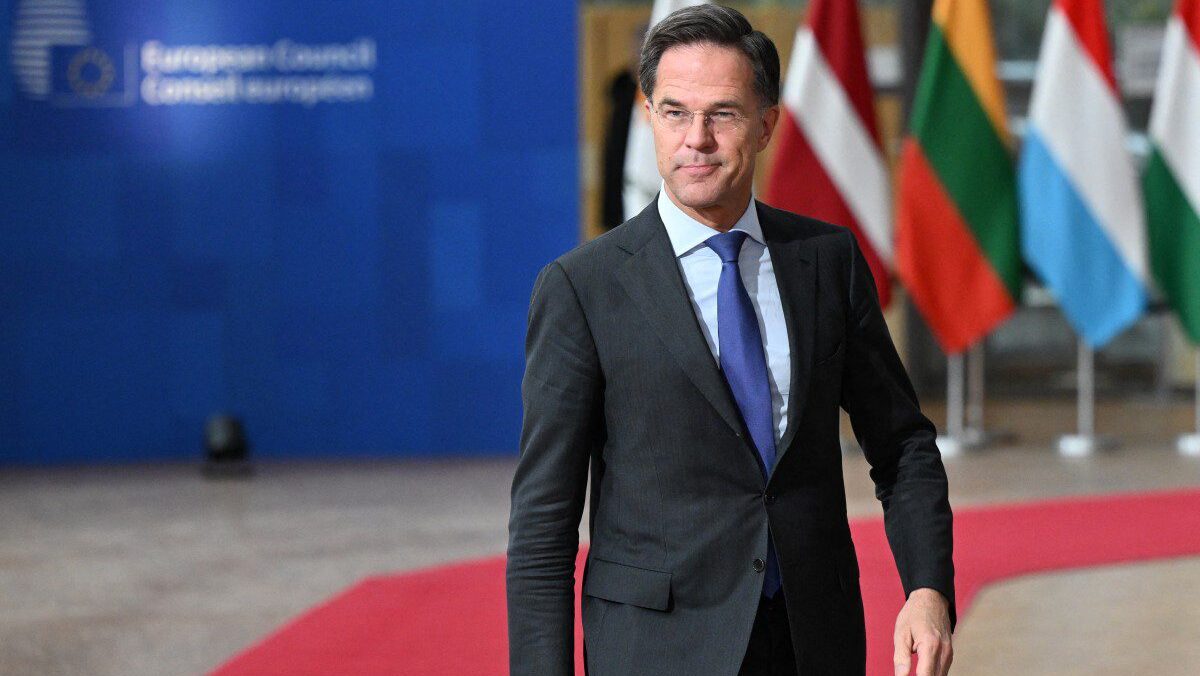
Netherlands’ Prime Minister Mark Rutte arrives for an EU leaders Summit at The European Council Building in Brussels on October 26th, 2023.
Photo: JOHN THYS / AFP
While initially having pledged to stick to teaching after his long tenure as Dutch prime minister, Mark Rutte, currently leading a caretaker government until November’s elections following his farewell to politics last July, is not prepared to bow out just yet.
Rutte, Dutch PM since 2010 in four consecutive governments, who has no military background, said he would be up for a position on the international stage, signaling an interest in the job of NATO Secretary-General at NATO in particular after Jens Stoltenberg, who has held the position since 2014 and is due to leave around the end of October.
During Den Haag FM’s program Spuigasten on Saturday, October 28th, Rutte deemed such a prospect “very interesting,” noting he would “be able to contribute something.”
Remarking that he thought his chances at landing the job were slim, since a woman for the first time was likely to emerge victorious, which Rutte deemed a “very good thing.”
He went on to emphasize he “would not lobby for it himself,” but added that “if it comes my way, perhaps yes.”
Contradicting Rutte’s seeming skepticism, Former NATO Secretary-General Jaap de Hoop Scheffer told De Telegraaf that he deems Rutte’s chances to be high. “In European capitals as well as in Washington people are now calling each other,” he told the publication. “They know who they are dealing with.”
For any candidate to have any hope of becoming chief of NATO, it is important that the U.S., being the military alliance’s largest funder, clears that person.
According to De Telegraaf, insiders report that Rutte had been considered by both former President Donald Trump and current President Joe Biden.
“The most important thing is to have [American President Joe] Biden behind you. The bond between Rutte and Biden is good so the chance is indeed there,” political editor for the right-wing conservative broadcasting association WNL Tessa van Viegen agreed during a broadcast on NPO Radio 1.
In a report by Politico, published in late January this year, an unnamed “senior European diplomat” gave out names that were the most on insiders’ lips. These included Dutch Prime Minister Mark Rutte, Estonian Prime Minister Kaja Kallas, and British Defense Secretary Ben Wallace, with Lithuanian Prime Minister Ingrida Šimonytė, Slovakia’s President Zuzana Čaputová, and European Commission President Ursula von der Leyen being far less mentioned.
According to former PvdA MP and campaign strategist Jacques Monasch, Rutte, while not having mentioned her explicitly, was likely referring to Kaja Kallas as being the woman most likely to end up in the seat.
Known for her unwavering support for the Ukrainian cause in its war against Russia, NATO’s Western allies might however consider someone from the East—and especially from the Baltics, being right on Russia’s doorstep—to be too hawkish.
Rutte’s knack for political survival, which saw him lead four coalition governments, had earned him the nickname ‘Teflon Mark.’ His star, at least domestically, however, started to wane in later years.
The cumulative effect of the child allowance scandal and his current cabinet’s handling of issues such as the reduction of nitrogen (in which Dutch farmers found themselves singled out, triggering protests and the creation of a new agrarian populist party), climate policy, immigration, housing, and education, saw trust from the Dutch population drop precipitously to less than one fifth, according to a late June poll.
Earlier that month, documents obtained through a freedom of information request show Klaus Schwab, chairman of the World Economic Forum, asking Rutte for the Netherlands to play a “leading role” in rolling out its ‘Great Reset’ policies in the area of managed food supply.
